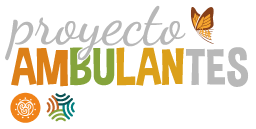Context Analysis
It is estimated that in Mexico 2.3 million people work as agricultural day laborers (Conasami, 2020). It’s important to note that a large proportion of the day laborer population consists of indigenous people. 24% of this population speaks an indigenous language, which is three times higher than the national ratio.
Various factors drive this temporary migration, mainly the lack of local employment to cover basic needs and the historical marginalization that rural communities in the central and southern regions of the country continue to suffer. In addition to serious social deprivation, high levels of marginalization and extreme poverty, there is also the insecurity and violence that plague many municipalities.
Veracruz, Oaxaca, Guerrero and Morelos are part of the growing migration dynamic that is taking place in the country. The communities of these states are considered ejectors of young people, as well as entire families seeking a livelihood. They offer their laborers to the agricultural industry, under inhumane working conditions and outside of official regulations.
In 2022 and in 2024, Project Ambulantes’ partner organizations conducted 135 interviews with day laborers in communities in four states of the country. The results of the interviews, summarized in the full Context Analysis, can be explored in detail on the Map and the Interactive Dashboards of this platform.
This research effort was carried out by Centro de Estudios en Cooperación Internacional y Gestión Pública, AC; Fomento Cultural y Educativo, AC; and CAMINOS Centro de Acompañamiento a Migrantes, AC.

Veracruz
Fomento Cultural y Educativo interviewed 46 day laborers from the Sierra Norte and Huasteca regions of Veracruz. Thousands of people from these areas converge in the city of Huejutla, Hidalgo, from where they depart at different times throughout the year to work for employers across the country. Most of these laborers belong to Nahua, Otomí and Tepehua communities, and are seeking to improve their living conditions, including food, housing, income, and security. They are also deeply concerned about the risks posed by organized crime, the ubiquitous presence of drugs, forced labor and abuse.
Oaxaca
CAMINOS Centro de Acompañamiento a Migrantes interviewed 40 workers from Zapotec communities in the Valles Centrales region of Oaxaca. According to the Encuesta Nacional de Jornaleros Agrícolas (National Survey of Agricultural Day Laborers) (ENJO, 2009), 24.4% of day laborers in the country are of Oaxacan origin. One explanation for the high levels of migratory expulsion is that Oaxaca is the third most marginalized state in the country (DIGEPO, accessed in January 2023). Most of the people interviewed expressed a desire for higher wages and better access to education for their children.
In general, the conditions and problems faced by day laborers and families in Oaxaca and Veracruz are a reflection of the reality that affects the overall day laborer population in Mexico. The demand for higher wages indicates that migration is not only a necessity for this population but also a crucial survival strategy. Also highlighted are requests for compliance with legal provisions aimed at improving living conditions in the workplace, education, healthcare, and legal employment mechanisms. These requests also highlight the need to reinforce the implementation of labor regulations. Furthermore, it is essential to address the systemic inequalities that have hindered the day laborer population from recognizing and asserting their rights.
Morelos
The state of Morelos has long been a magnet for temporary agricultural day laborers. In addition, it became a settlement area for several families of agricultural laborers in the last decade of the 20th century, primarily from Guerrero, but also from Oaxaca and Puebla.
Morelos has also become a state of origin, as many of these laborers who settled there over two decades ago are now migrating to work in the agricultural markets of other states, such as Hidalgo, San Luis Potosí, Guanajuato, and others in the central and northern regions of the country, in addition to participating in the seasonal agricultural harvests within Morelos.
The state was a supplier of sugar in the first half of the 20th century, but in the second half, it also became a producer of vegetables. Sugarcane is grown across the territory, with the southern and eastern regions serving as the primary sources for the state’s two sugar mills: Emiliano Zapata and La abeja.
The municipality of Ayala, located in the eastern part of the state, is home to several sites where day laborer families are settled on the outskirts of Tenextepango. The area has a population of approximately 8,835 inhabitants. A 2017 analysis by the municipality of Ayala indicates that La Joya is one of the areas with a high rate of disenfranchisement: -0.6696.
Guerrero
The La Montaña, or Montaña Alta, region is known for its significant migration of day laborers. Located on the border of Puebla and Oaxaca, it is home to three of the four most prominent ethnic groups in the area: Nahua, Na’ Savi (Mixtec) and Me’ Phaa (Tlapanec). The fourth indigenous group is the Amuzgos, also known as the Nn’anncue, who are located in the eastern part of the Sierra Madre del Sur, along the border of Oaxaca. The region is made up of 19 municipalities.
La Montaña is not only a region that expels indigenous people to the United States, but recent data from the past decade reveals that, out of the 19 municipalities it comprises, Metlatónoc, Cochoapa el Grande, Tlapa de Comonfort, Copanatoyac, Atlixtac, Xalpatláhuac, Alcozauca and Atlamajalcingo del Monte are the eight with the highest rates of agricultural day laborer migration within Mexico.
Several municipalities of La Montaña, the primary source of agricultural migrants, have the lowest human development rates in Mexico, marked by a very high degree of marginalization compared to the cities to which they migrate each year, such as Culiacán (Sinaloa), León (Guanajuato) or Hermosillo (Sonora).
We invite you to explore the full Context Analysis, as well as the Map and Interactive Dashboards created from this work by Proyecto Ambulantes.
